How ‘the generals’ from Deloitte saved Virgin Australia from the scrapheap
This time last year Virgin had most if its aircraft grounded, was bleeding cash and facing thousands of creditors. It could have gone the same way as Ansett.
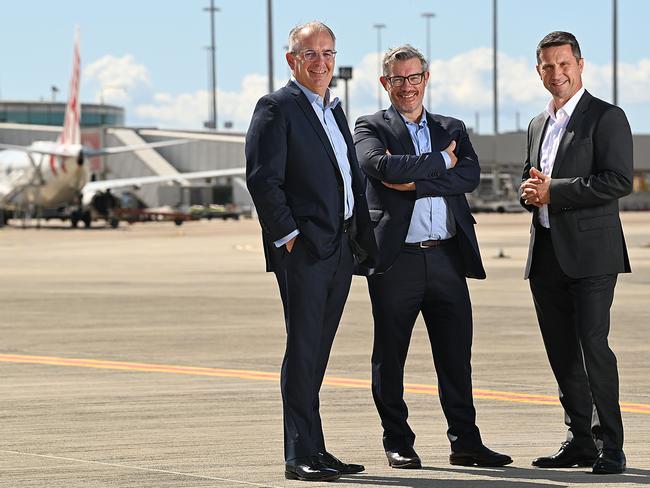
From the minute they knew they would be appointed as administrators of Virgin Australia a year ago, Deloitte’s Sal Algeri, Richard Hughes, John Greig and Vaughan Strawbridge, were determined to do what they could to save the airline.
At the back of the minds of the group — which came to be known as “the generals” within Deloitte — was the fear that if they couldn’t pull off a deal to sell the airline it would go the way of Ansett, which collapsed in March 2002 with more than 16,000 people losing their jobs and a flow-on effect to many small businesses.
Hit by travel shutdowns because of the COVID-19 pandemic which began in early 2020, the board of the Brisbane based airline was forced to put the company into administration on April 20, 2020, with debts of some $7bn.
“From the minute we got the call in the weekend before, when we were all at home, we said to each other we were simply not going to allow this airline to fail,” Deloitte managing partner for Queensland, John Greig, told The Australian.
“The Ansett experience was in the forefront of our minds.”
Ansett went into administration in September 2001 but, despite interest from some of the country’s top business leaders including trucking magnate Lindsay Fox, it eventually went into liquidation six months later, the biggest corporate collapse in Australian history at the time.
The four “generals”, all veterans of accounting firm Deloitte, were able to pull off a deal in a near record 67 days which saw Virgin sold to private equity firm Bain, allowing a smaller but financially fitter airline to emerge.
Meanwhile Deloitte still has some $500m in the bank from the deal, with plans to pay out creditors a dividend in August.
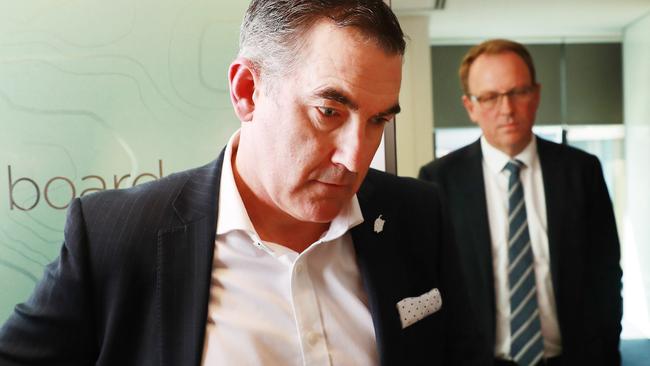
Unsecured creditors, including bond holders, have been given an indicative payout of 10c to 13c in the dollar.
Sydney-based Strawbridge, who was the public face of the administration, has since left the firm for a position as senior managing director at FTI Consulting.
The other three – Greig and Hughes, Deloitte’s lead restructuring partner in Brisbane, and Melbourne based national restructuring leader Algeri – spoke to The Australian this week about the behind the scenes work which led to them pulling off one of the biggest deals of their careers.
This time last year Virgin was bleeding cash, with most if its aircraft grounded and thousands of creditors — from Mum and Dad investors in Virgin bonds to some aircraft lessors, and thousands of Virgin staff — all wanting to know what was happening.
“For us to be sitting here 12 months later with an airline which is up and operational, the employees all paid out 100c in the dollar and many creditors paid out already, is unheard of for an administration of this size and nature,” Greig said.
The deal was done against the backdrop of an ongoing pandemic.
“It was unprecedented times,” Greig recalls.
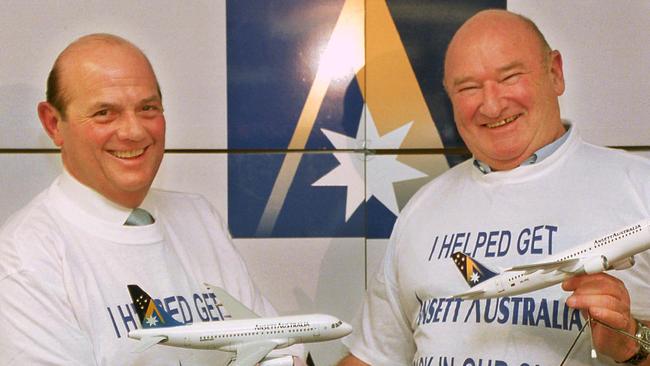
“We were doing it all through COVID-19. There were borders opening and closing. It was unsettling.
“We had no idea what the external environment might deliver in terms of where COVID-19 was going.
“All we knew was it was delivering uncertainty and the quicker we could deliver certainty for our stakeholders and get a deal done, the better.”
Greig and Hughes moved into Virgin’s head office in Brisbane, working alongside its senior management — led by then chief executive Paul Scurrah, and its chief financial officer Keith Neate — with everyone critically aware of what was at stake.
All veterans of Deloitte, the four “generals” knew each other very well. They began a routine of daily meetings, starting at 7.30 each morning and reconvening at 6.30 at night, including over the weekends, until the deal was done.
While airline itself lobbied the federal government for financial support which never came, the four oversaw the running of the airline, trying to ensure it did not run out of cash. At the same time they were running a high stakes, high-profile sales process which drew in interest from airline investors around the world, all the while conducting ongoing briefings for key stakeholders including the unions.
95% revenue drop
Hughes was in charge of overseeing Virgin’s day to day operations. One of his major focuses was on cashflow – making sure the airline did not run out of money before the sale process was finalised.
They set about doing deals with major creditors to cut their cash demands, preserving as much money as possible pending a deal being done.
“You can imagine the devastation to the cashflow from a 95 per cent drop in revenue in a matter of days,” Hughes says.
“They went from about 500 flights a day to 150 a week. It had a massive impact on what was already a pretty strained cash flow.”
“We went into a whole range of negotiations to preserve cash flow,” says Hughes. “We ended up preserving quite a bit of cash along the way but we were watching it like a hawk.”
But cash flow was always going to be the issue, driving a tight sale time frame.
Algeri’s major focus was on the lessors of Virgin’s 72 aircraft, who collectively made up around $3.5bn, or half, of the airline’s total creditors by value.
“They were across multiple geographies and time zones,” he says. “It was like herding cats.”
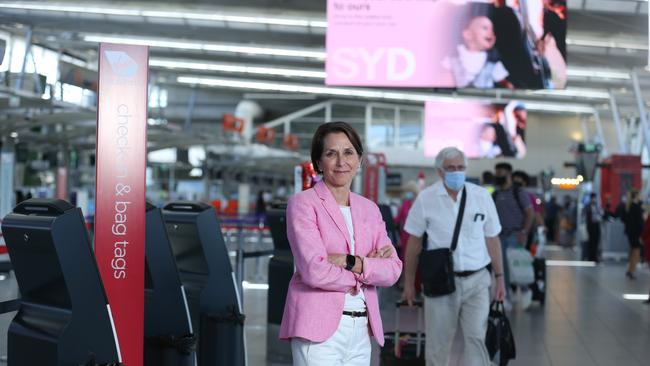
Virgin was paying out more than $US70m ($90m) a month in lease payments to them.
Algeri approached all of them, convincing them to accept a deal whereby Virgin would only pay for their lessors if the plane was flying, to give the administrators time to negotiate a deal which may see the new owner continue with their aircraft.
Initially pacified, the aircraft lessors were alarmed to see pictures of bulldozers in front of Virgin planes at some airports in Australia — the planes blocked by airports wanting unpaid fees.
“We had spoken to 72 different financiers and told them to stick with us and that we were going to get everything sorted,” Algeri recalls.
“The next thing they saw was these bulldozers in front of the aircraft.”
Algeri had to go back to all of them again and assure them that things were still on track.
With COVID-19 severely impacting the ability to travel, the four devised a virtual system of creditors meetings and interactions using the “Halo” program, which also reduced costs and allowed for faster decision making.
Strong buyer interest
On the positive side was the early news that there was a great deal of interest in the airline.
“We had over 70 parties contact us in the first few hours after our appointment expressing an interest,” says Greig.
“Within seven days of our appointment we had sent out all the information memorandums to give them the initial information in relations to the business.”
“There was a high level of interest. People sensed that it was worth saving.”
There was a process of culling out those players who did not have the financial capacity to complete a deal.
This came down to some 20 more serious parties, who were then culled down to a short list of five.
By mid-May it was down to four: Bain Capital, private equity firm BGH Capital, Indigo Partners and Cyrus Capital Partners.
From the beginning the Deloitte four decided to make all major decisions together.
“It was an accelerated sales process which was specifically designed to ensure that we kept up the competitive tension in the process but also locked in the successful party,” says Greig.
The four sat down with the short-listed parties over a two-day period, going through their proposals in detail.
“We all collectively sat with them to workshop their proposals and explored exactly what their intentions were,” says Hughes.
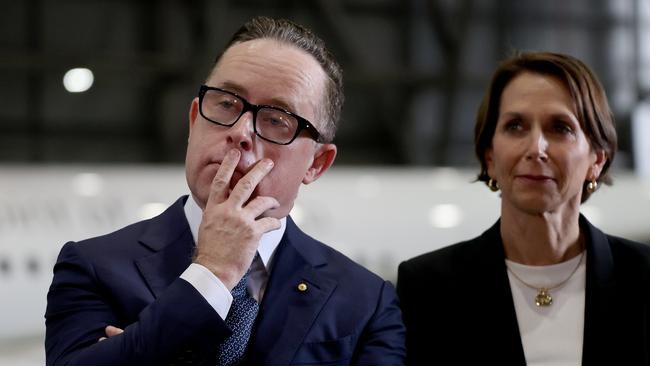
“It was one of the most amazing things I’ve ever done in my career, the way we discussed and explored exactly what their intentions were.”
By early June the short list was down to two: Bain and Cyrus.
One of the key factors was the ability to put up cash upfront and be willing to assume operational liability for the airline.
The administrators also decided on the unprecedented process of a two-pronged deal which would see the successful bidder contract to put in cash upfront and take over operational responsibility from July 1 — agreeing either to buy the company itself or, if the deal were rejected by the creditors, to buy the assets of the company.
There was a last-minute attempt by two of the major bondholders to take legal action to stop the process, but in the end the creditors overwhelmingly approved the deal put to them.
The three are adamant that the Bain bid was by far the best bid on both cash terms and what it meant for Virgin’s wide range of stakeholders.
Throughout the process the “generals” negotiated constantly with a range of stakeholders including the unions as well as creditors.
They argue that keeping stakeholders onside was critical to its success.
The Deloitte three argue that the success of the process proves the potential of the voluntary administration process to save a viable business.
This is a long way, they say, from the old days when receivers were called in to be corporate undertakers of failed businesses.
“Voluntary administrations don’t have to be the death of a business,” Hughes says.
“When we went into Virgin we saw there was a huge opportunity to accelerate the strategic improvement program which was already in place under Paul Scurrah.
“We believe that the right bidder would see that and take it on which is exactly what happened with Bain.”
“There is this vernacular of people seeing us as being corporate undertakers, but we don’t see it that way at all.”
“We see ourselves more as an intensive care unit where we are resurrect a business.
“As we have shown with Virgin, if the board comes to us early with the right intention, there is a huge opportunity to get a business back on track and to save jobs and keep the business going.”


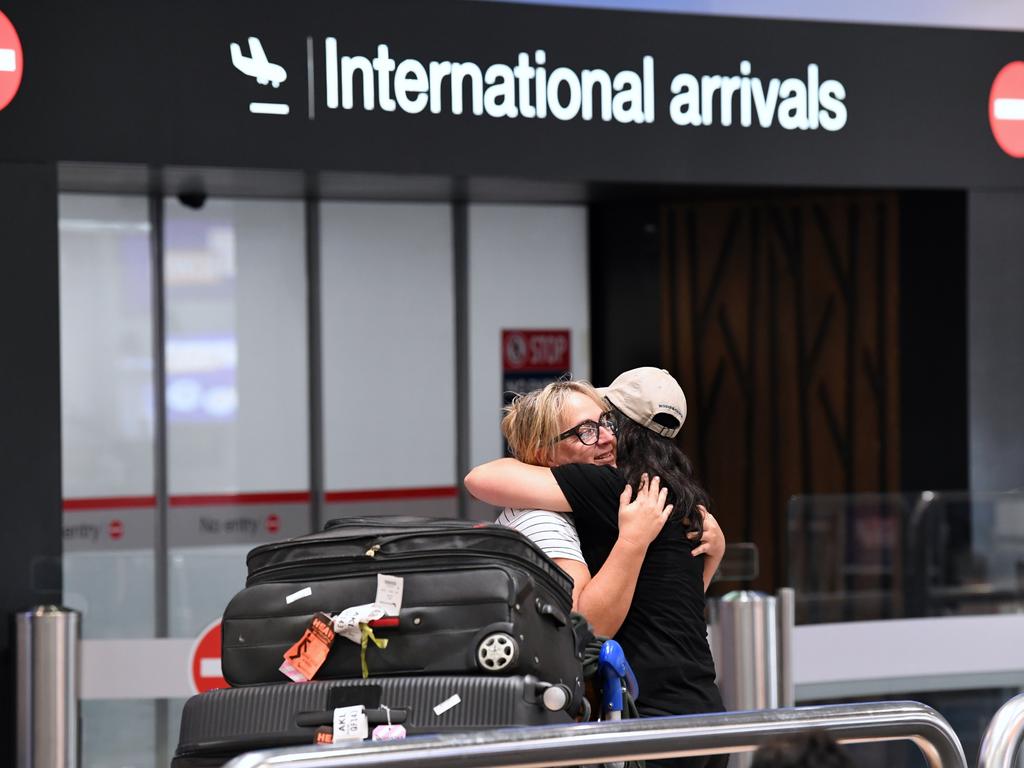
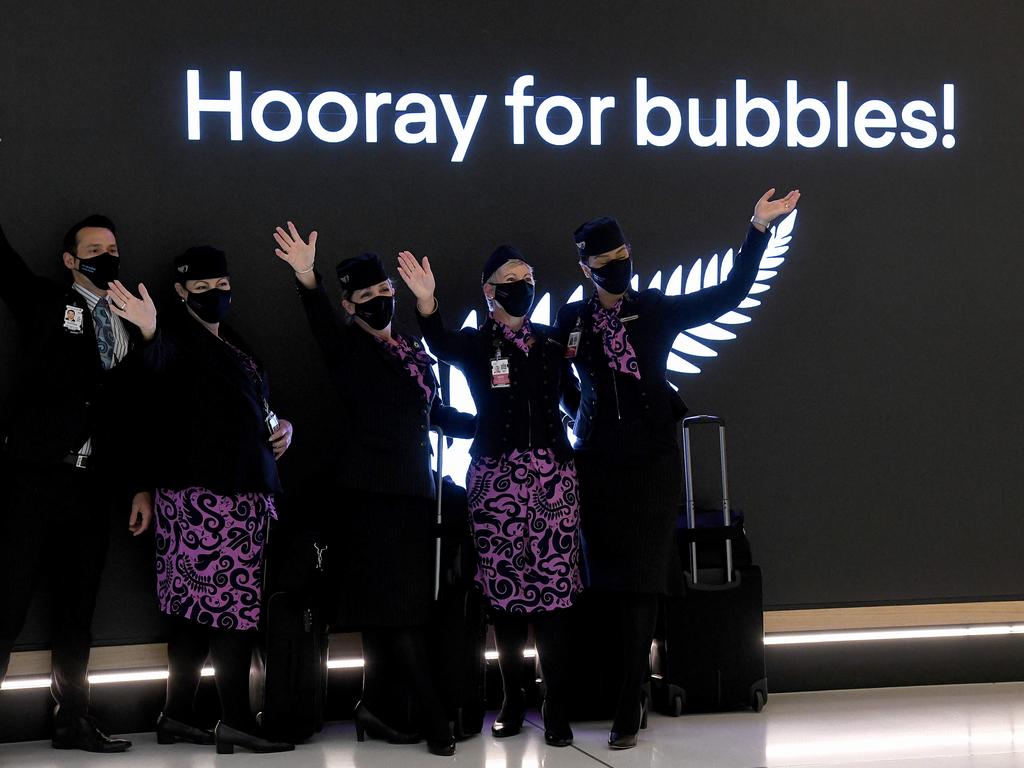


To join the conversation, please log in. Don't have an account? Register
Join the conversation, you are commenting as Logout